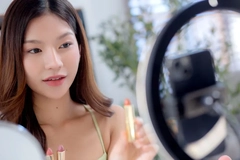Registrar Corp acquires PCR to streamline global cosmetic compliance

Registrar Corp has acquired Personal Care Regulatory (PCR) Group, a UK and Ireland-based firm specializing in cosmetic regulatory and toxicology services.
This move aims to help the cosmetics compliance services provider expand its capabilities for businesses needing to meet both US and European regulations by integrating PCR’s knowledge of UK and EU cosmetic regulations with Registrar’s existing experience in US FDA compliance.
Their combined teams of toxicologists and regulatory specialists will now offer complete compliance support for personal care companies, including acting as a Responsible Person — a requirement for selling cosmetics in the UK and EU.
PCR’s founder and managing director, Mojgan Moddaresi, says: “We’re thrilled to combine our regulatory compliance expertise with Registrar Corp because it enables us to serve more companies, provide a broader set of capabilities for our existing clients and keep more people safe.”

Expanded offerings
Registrar’s acquisition of PCR introduces support for cosmetic product safety reports, product information files and post-market monitoring. It will also provide knowledge of how to navigate UK and EU regulations alongside safety evaluations to meet regulatory standards.
The acquisition will implement ChemComply software — a digital platform to accelerate cosmetic safety and compliance management.
Registrar Corp’s CEO, Raj Shah, notes that the partnership aligns with the company’s broader mission of keeping people and the planet “safe by helping companies meet global compliance requirements.”
Cosmetic compliance
Personal care companies globally are adjusting to new compliance regulations as ingredient formulations adapt to consumer demand for more sustainable and less harmful alternatives.
Recently, the UK government called on the cosmetic industry to submit information on ingredient formulations used for eyelash growth serums, following their increasing popularity in the British market and their intended use in close proximity to the eye. Research previously raised concerns about the ingredients’ safety.
Northern Ireland notified the World Trade Organization last month that it intended to ban the sale of wet wipes containing plastic — including facial wipes, sheet masks and baby wipes — as these products break down over time into microplastics, harming human health and disrupting ecosystems.
The Modernization of Cosmetics Regulation Act of 2022 also recently expanded the FDA’s authority over cosmetic products, enforcing stricter regulations for colorants and requiring companies to provide documentation proving product safety to enhance ingredient transparency for consumer safety.













